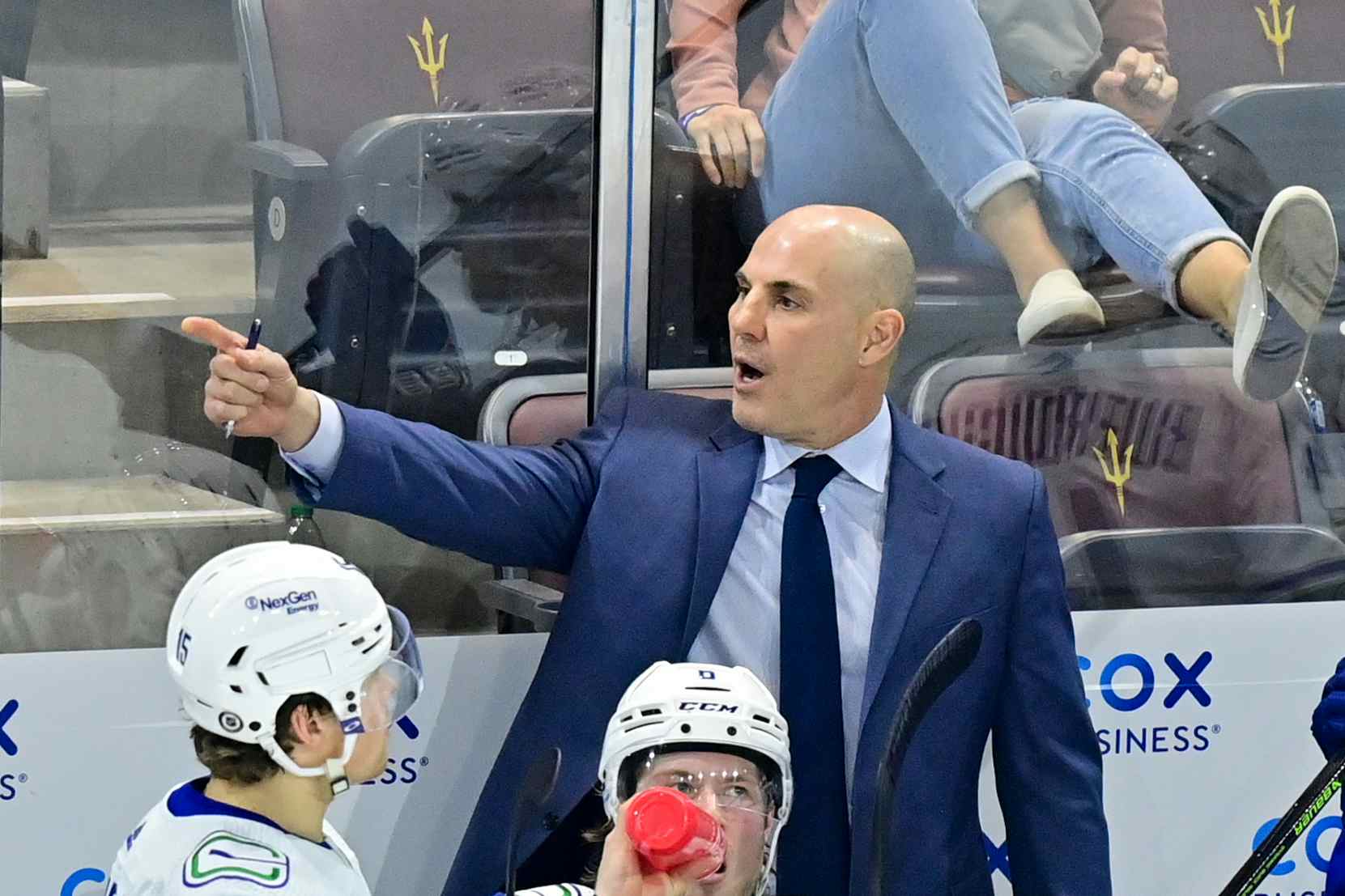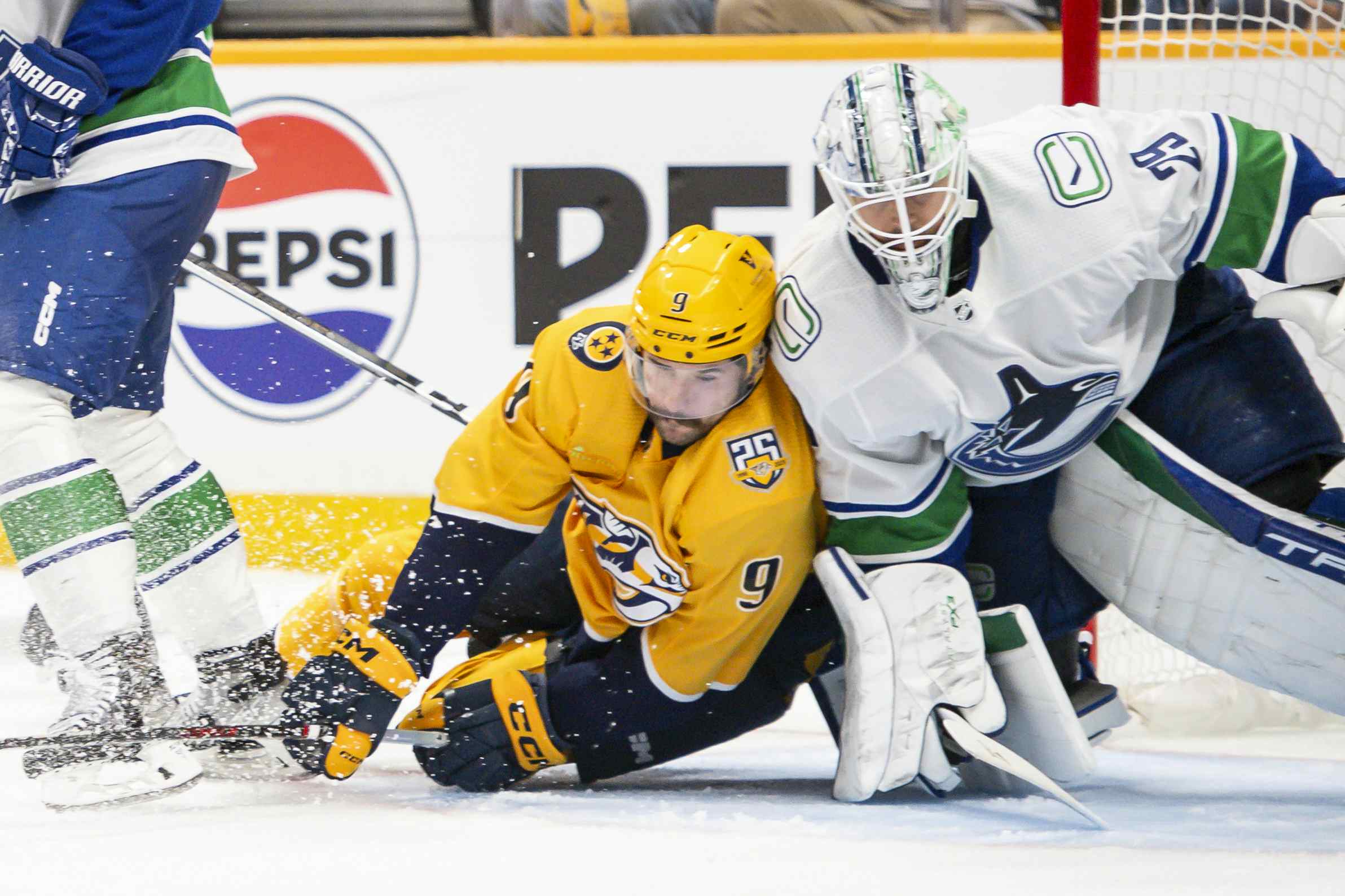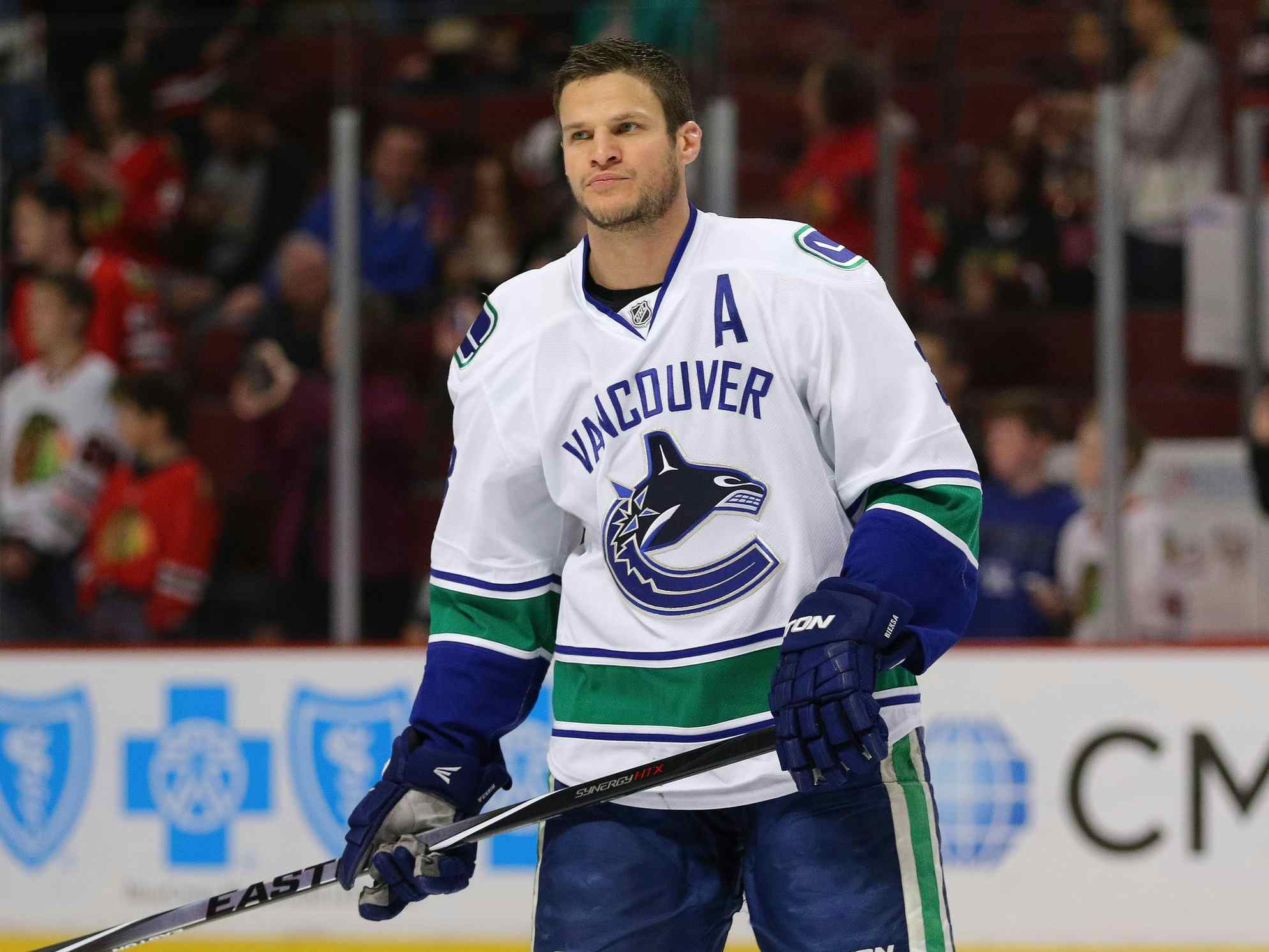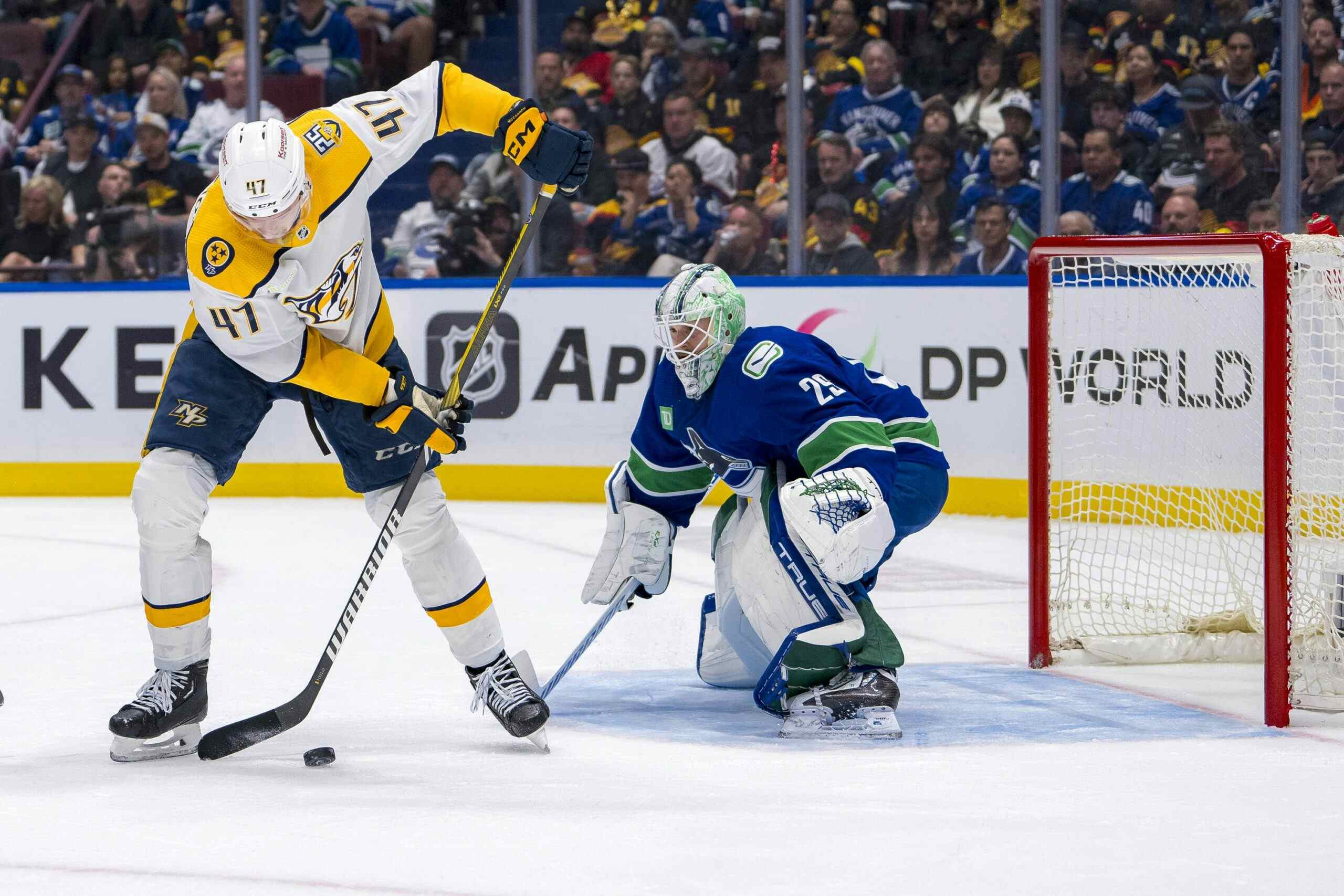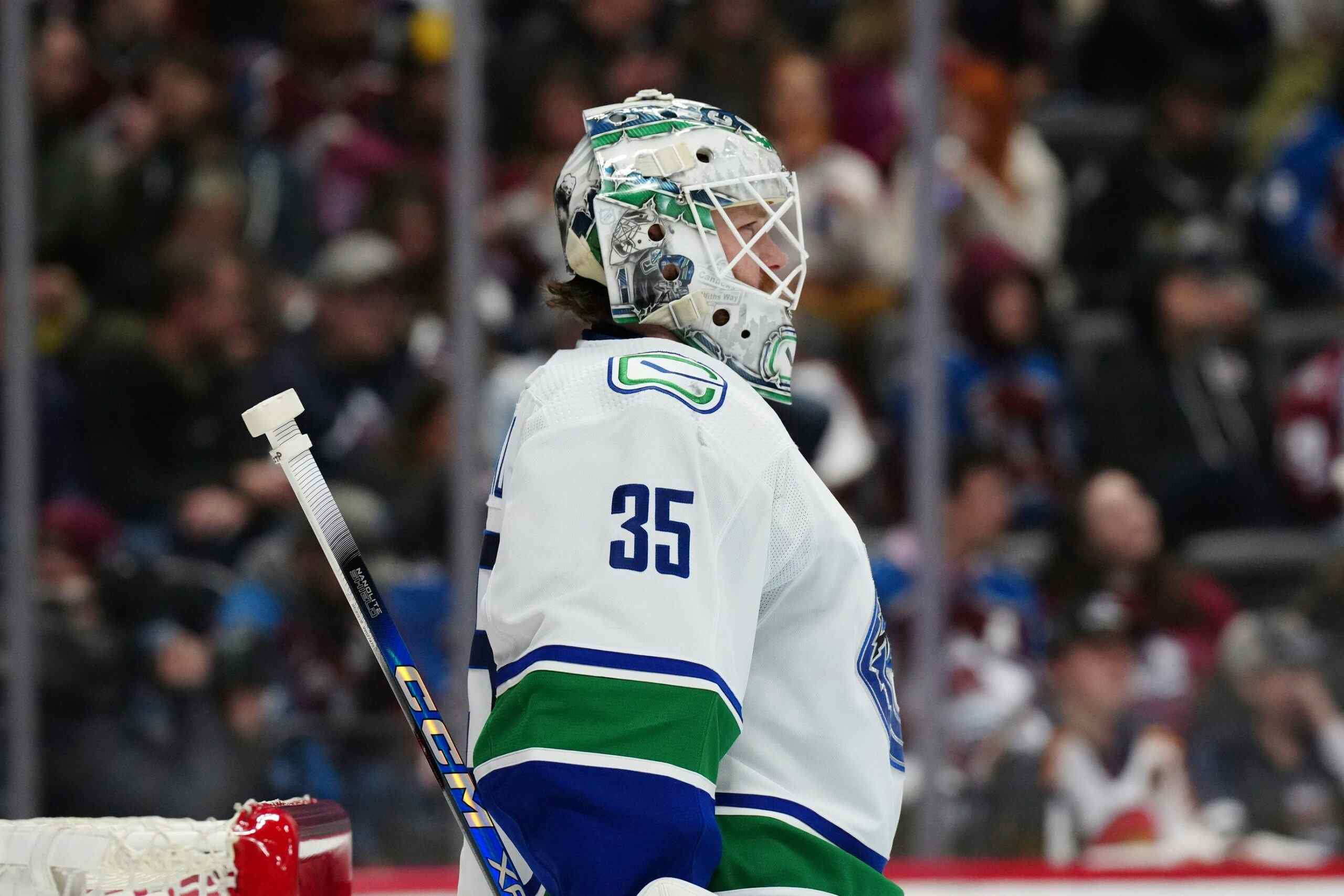Ill-advised Deployment Contributed to Tryamkin’s Defection

By Jeremy Davis
7 years agoFor all the talk about the luxurious defence during the Vancouver Canucks’ 2016-17 season, things are starting to look pretty bleak on the backend.
While Luca Sbisa seems like the odds on favourite to be taken by Vegas in June, the Philip Larsen experiment has official come to an end, and the Canucks will be dealing with some subtraction-by-addition with the probably return of Erik Gudbranson next season, there has been no greater blow to the Canucks defensive depth than yesterday’s news that Nikita Tryamkin is returning to the KHL next season.
The only thing more disconcerting than the fact he is leaving, is the reason why. Upon signing a one-year contract with his old KHL squad in Yekaterinburg, Tryamkin told Russian reporters that he was disatisfied with the way the Canucks handled him this season – but in terms of not playing him at all early, and not playing him enough later. (from eanews.ru, via Google Translate)
During the season I was not happy with some matches. Sometimes I just did not understand – why? I could play 20 minutes, I could play 16, I could play 12. And on what it depended, I did not understand.I had an incomprehensible situation. I did not play the first 10 matches. Indeed, there were talks about the return, but Vancouver did not let me go, so I stayed.
Many pointed out the 12 minute thing, noting that he averaged 16:44 and thus was exaggerating his situation. Given the above translation, it appeared that he was stating that he could be playing 12 minutes in a game, or he could be playing 20, and it wasn’t made clear to him what the reason for the discrepancy was. He did have some nights around 12 minutes, so I’d caution before lighting him up for referencing that number.
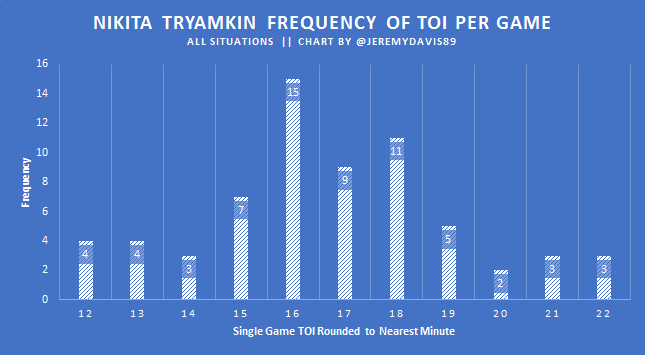
The fact that Tryamkin appears dissatisfied with his minutes would be easy to brush aside if not for the fact that he has a pretty strong case. He should have played more, and he probably could have handled it.
Jeff Paterson pointed out that Tryamkin played the 14th most minutes of any rookie defenceman this season. His 16:44 average TOI underlined the idea that the team saw him as a seventh defenceman. Among “regulars”, only Alex Biega and Philip Larsen (the afterthoughts of the first and second halves of the season, respectively) played fewer minutes on average. He was unable to get into a game until Chris Tanev was injured, and only stayed in when Tanev returned because Erik Gudbranson’s season happened to end at the same time.
Despite having the lowest average ice time among Canucks defencemen (a defence core that included Luca Sbisa, Erik Gudbranson and Alex Biega), Tryamkin had the highest score-adjusted Fenwick among Canucks defenders. The next two blueliners after him are Ben Hutton and Alex Biega, who, by the way, spent a lot of the season as Tryamkin’s defensive partners. A quick glance at a WOWY table indicates that both Hutton and Biega benefited from playing with the big Russian, owning worse shot ratios away from him compared to with him.
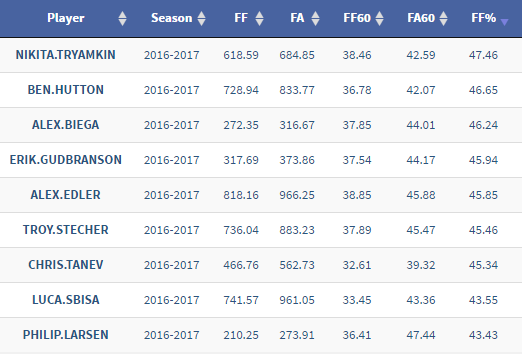
Willie Desjardins made a few odd remarks regarding Tryamkin in the late goings of the season, which probably didn’t help with his desire to stay with the team. One of which was the time he suggested that they would have won against Boston if Tryamkin had “stepped up on” Brad Marchand, essentially blaming the Russian rookie for the Canucks loss. This was certainly a strange occurrence, especially given the fact that he had “stepped up on” Jamie Benn the game previous, leading to an injury for the Dallas captain, but not a Vancouver victory.
Perhaps more damaging was the time that Desjardins opined that Tryamkin had “hit a wall” in his development when asked what he thought of Tryamkin’s play in what many fans and media thought was one of his best games of the season. Desjardins’ knack for undercutting his players, a bizarre feature for someone paraded as a teacher of the game, also could have rubbed Tryamkin the wrong way. The mere fact that Desjardins (and Tryamkin’s position coach, Doug Lidster) are no longer employed by the team may not be enough to convince him that something similar won’t happen again, if he feels management was complicit with how he was treated and deployed.
One potential excuse for the Canucks not playing Tryamkin more might be his level of conditioning. This came into question early in the year, when it was made known that Tryamkin had shown up to training camp out of shape, and was put on a special diet and regimen to get his body into NHL condition. He was eventually forced into the lineup because of injuries, but reports indicated that he was in phenomenal shape later on in the season – despite the fact that his ice time remained in bottom pairing territory, if that.
Even if the Canucks were afraid of Tryamkin not being able to maintain his underlying numbers if they increased his responsibility (we’re giving them the benefit of the doubt here and assuming that they were aware of how good his shot metrics were), surely they could have afforded to take the risk and see how he handled more minutes, when those minutes were being eaten by defenders with far worse numbers – including a clearly injured Chris Tanev and a clearly overplayed Alex Edler.
A cursory comparison between his single game TOI and unblocked shots against per 60 (FA60) indicates that his own-zone rates stayed relatively stable (on average) when ice time was increased.
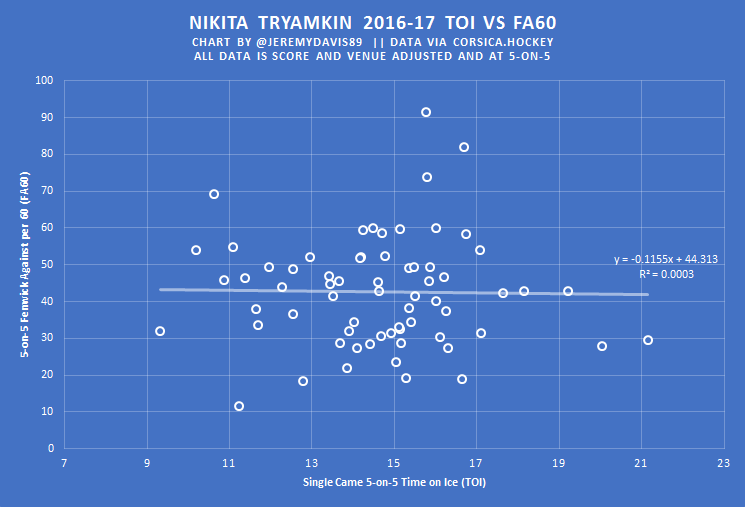
Perhaps more damning is this evidence that the rate of scoring chances against showed an appreciable decrease in response to increased 5-on-5 time.
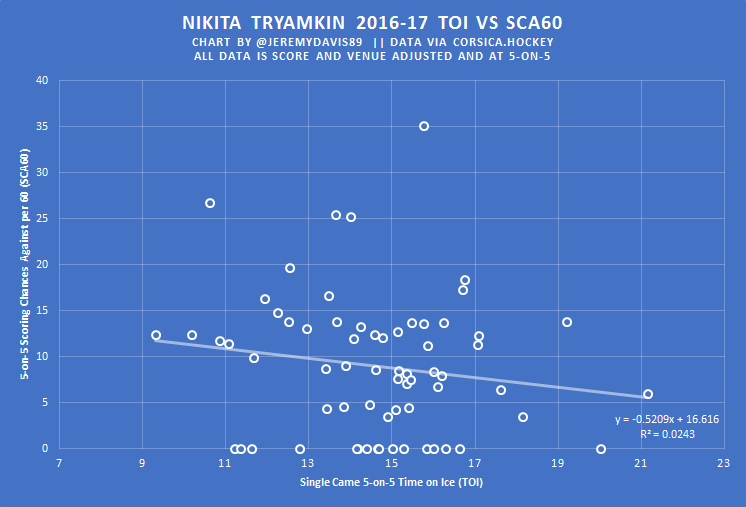
We can’t guarantee whether Tryamkin could have maintained his impressive shot suppression rates given a steady diet of top four ice time, but there is evidence that it should have at least been attempted, and evidence that we wasn’t being excessively boastful when stating that they could have played more minutes.
Numbers like these make Tryamkin’s defection all that much more difficult to swallow. It wasn’t just a young defencemen with an attractive amount of height and decent skating ability. The Canucks have virtually lost a top-four defencemen here, apparently without even realizing they had one.
Other Potential Reasons For Departure
A concession has to be made as well that we don’t necessarily have all the facts here, or know the true motivation for his departure. Family issues have been mentioned by the team as a potential reason. Whether that means something back home, or with his wife who was here with him, is merely speculation. Both were dealing with a degree of culture shock, knowing or coming into contact with few, if any, people that spoke their native language.
If one of these more personal reasons were the leading factor, then perhaps the way the Canucks treated Tryamkin proves to be inconsequential. One thing that I’ll say though is that they certainly didn’t help the situation with the way they handled him on the ice, when they did let him play.
Others have pointed to a lack of trust between the team and the player, beginning with the fact that they essentially tried to renegotiate the contract they signed with him, trying to get him to accept a stint in the American League after promising in writing that he wouldn’t have to endure such a thing. Some point to Tryamkin being entitled as a result, but you could just as easily point to the Canucks for fostering that feeling in the first place by giving him the out-clause.
This isn’t even to mention the fact that, by the look of his play when he got into games, he was right about belonging in the NHL rather than the minor leagues. The culture shock of living in Vancouver for $925,000 was hard enough, before we even consider the culture shock of living in Utica, New York for $70,000.
There are a lot of layers to this situation, and while I’ve dipped my toe in them, Wyatt Arndt did a stellar job this morning of dissecting the dichotomy of the reaction of the fanbase – which I’d encourage you to read – which also touches on the Canucks’ obsession with making Tryamkin into something he might not have wanted to be. I’m in Camp Happy, by the way. You do you, Nikita.
The Door to Return Appears Open
The positive side of this, if you’re into that sort of thing, is that Tryamkin’s KHL pact is only for a single season, leaving wide open the option to return to the Canucks in 2018-19, should he choose to do so. The fact that he opted for one season could in fact be an indicator that his preference would be to return, since he surely could have gotten more than a single season with Avtomobilist if he wanted to.
Since I’m tossing around blame anyway, might as well heap some on the NHL itself. I’m not convinced that it’s a coincidence that he goes for a single season in Russia that coincides with the next Winter Olympics, one that the NHL doesn’t intent to allow its players to participate in, much to the chagrin of the players themselves. Russians in particular are known for their fierce loyalty to their national team.
During the last international best-on-best tournament, the 2016 World Cup of Hockey, I suspected that Tryamkin was the Canucks’ best shot at having a Russian represent them in the 2020 iteration. This was as much about the Canucks not having other Russian options as it was about Tryamkin, but my statements on Russia’s relatively lackluster defence still stand. Though he’s not a lock for the Russian Olympic team, he’d certainly be under consideration, and playing in the KHL might increase his odds if some NHL teams make it difficult for their defencemen to participate.
With a single year out of the way, a potential chance to represent his country, to sort out what’s best for his family, and to observe from afar how the Canucks look after what could be another dismal season in 2017-18, it’s possible that Tryamkin might have a change of heart and grant us a return.
The Canucks and their fans alike remain hopeful and optimistic that they haven’t seen the last of the big Russian. With four more seasons before Vancouver’s NHL rights on Tryamkin expire, it’s certainly still on the table. If that happens, we’ll just have to hope that Canucks management gives a little more consideration to how they handle him on and off the ice.
Recent articles from Jeremy Davis

